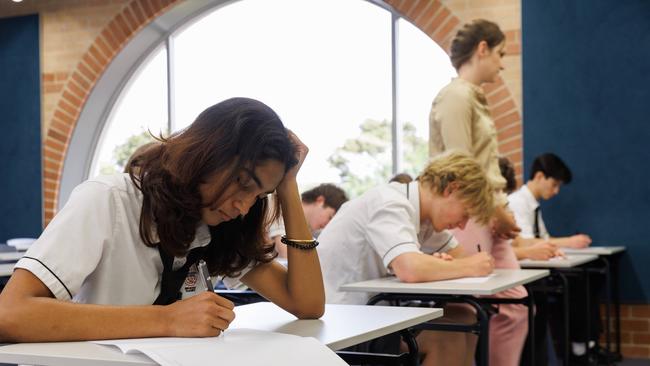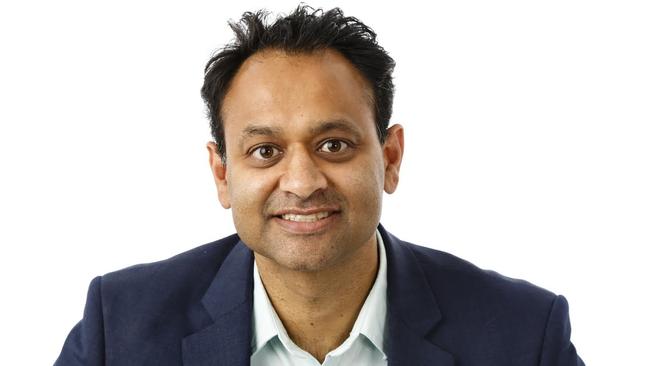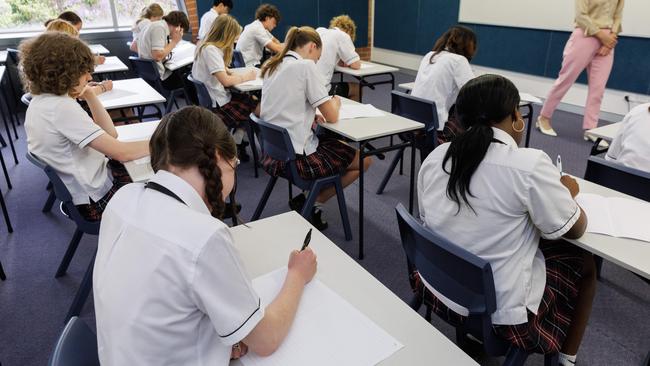HSC disability provisions more common in northern Sydney, inner city than the West
HSC students in parts of northern Sydney and the Inner West are almost twice as likely to be receiving disability exam provisions as their Western Sydney peers, and the gap has school leaders and experts concerned. Search for your school here.

Education
Don't miss out on the headlines from Education. Followed categories will be added to My News.
Children in parts of northern Sydney and the Inner West are almost twice as likely to be receiving special provisions for conditions including ‘anxiety’ and poor spelling in their HSC as those in Western Sydney.
Year 12s with physical medical conditions, learning difficulties and psychological conditions can apply for access to a myriad of additional supports for their HSC exams including rest breaks, extra time, and individual or small group supervision.
Last year, nearly 7000 students were approved for rest breaks alone, and almost 1500 were given up to five minutes extra time per half-hour.
But with more students in affluent areas accessing disability provisions than those in the suburbs and the regions, there are growing concerns about the fairness of the system.
In 2022, less than 11 per cent of HSC student at schools in the Penrith area were approved for special provisions by the NSW Education Standards Authority (NESA), while 20 per cent of those in northern Sydney benefited.

In the heart of the city, 32 per cent of the students at St Andrew’s Cathedral School who sat the HSC last year had disability provisions. At Moriah College in Bondi Junction, 58 of their 168 students were approved.
To prove eligibility, students generally need to provide medical evidence and other supporting documents. Diagnosing conditions such as autism, ADHD or social anxiety can cost thousands of dollars in visits to psychologists and paediatricians.
The geographic divide between the haves and the have-nots has prompted some school leaders in outer Sydney to express frustration with the inequity, and call into question the prevalence of exemptions for disorders such as anxiety.
“We can’t say that a third of the wider society have disability,” one commented.
Child psychiatrist Dr Tanveer Ahmed said demand for his services is already through the roof as doctors, lawyers and bankers with kids in Year 11 try to get them signed off for special provisions in next year’s exams.
“The uptake of disability provisions in schools … overwhelmingly favours the most elite schools because they are best able to access the necessary expertise and, sometimes, to game the system,” he said.

“Increasingly, there’s a fine line between illness and performance enhancement … (disability provisions) are another tool in the educational arms race among elite parents.”
NSW Secondary Principals Council president Craig Peterson said determining whether a student’s anxiety is abnormal presents a “very difficult challenge” for the regulator.
“Technically, it’s a fair and transparent process. The problem actually becomes more nuanced because … the reality is that there is an inconsistency of awareness between schools,” he said.
“Some schools, regardless of sector, … will be looking for every competitive advantage they can get.”

The growing number of HSC students gaining special provisions has even seen schools struggle to accommodate them, forced to find extra space and exam supervisors for up to a third of their cohort.
The Daily Telegraph has spoken to principals at schools where the rise in disability provisions has put additional strain on their ability to source invigilators, with Covid fears seeing fewer retirees and grandparents putting up their hand for the job.
NESA was unable to confirm how many students had been approved for disability provisions this year, or for which conditions, but a spokeswoman said the process is “necessarily rigorous”.
“Approved provisions provide students with an opportunity to show what they know and can do in the HSC exams and do not confer an advantage,” she said.





